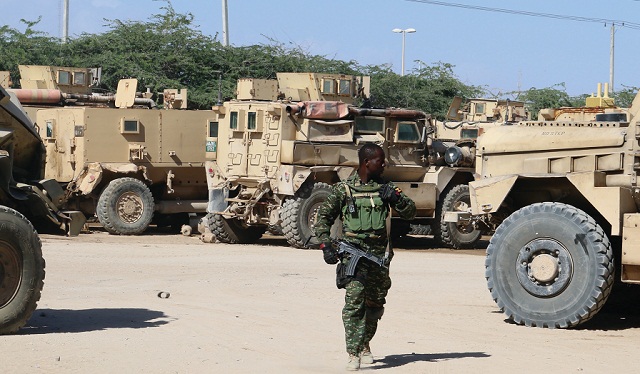
How a clan system and external players are complicating the country’s reconstruction
Kampala, Uganda | IAN KATUSIIME | When I flew to Mogadishu, Somalia’s sandy capital, on December 16, 2017; I was filled with a heady mix of anxiety and excitement because of the image we all have of Somalia; bomb wreckages, lone wolf assassins, and Al Shabaab Muslim militants lurking in the shadows everywhere.
Mogadishu is still reeling from the shock and awe of a truck bomb that killed over 500 people last October. Even though the attack, for which Al Shabaab claimed responsibility, was the deadliest Somalia has seen in decades, the country has long witnessed such acts of terror since Mohamed Siad Barre was ousted from power in 1991. He had been president since he captured power in a coup in 1969.
His ouster led to the birth of Islamic Courts Union (ICU), a ragtag Islamist group which alongside other armed factions in the country battled for the control of the Horn of Africa nation- perpetrating mayhem and anarchy until relative stability was established in the late 2000s, first by the Ugandan army forces -Uganda Peoples Defence Forces (UPDF) and later by joint forces of the African Mission in Somalia (AMISOM) that include UPDF.
On my trip, and after interviews with the President of Somalia, Mohamed Abdullahi Mohamed, some AMISOM commanders, and officials of the African Union (AU) based in Mogadishu, I witnessed not only a sense of accomplishment but a puzzle over the next move. The question of whether UPDF stays is no longer debated. Instead, the question is what happens when it leaves. Part of the reason is that nothing inside Somalia is what it appears to be to those outside the country.
The UPDF, under AMISOM, has accomplished a lot; from pushing Al Shabaab out of Mogadishu, securing the country’s airport and State House, and providing some social services to ordinary Somalis in a country that has barely had a working government for years. Yet commanders on the ground, including Brig. Kayanja Muhanga, who until recently has been the UPDF contingent commander in Somalia, remain apprehensive about the future.
When we sat down with Muhanga in his office at Base Camp, the expansive AMISOM base controlled by UPDF, he was preparing to hand over in three days to Brig. Paul Lokech. So he was in reflective mode and spoke expansively about what has made UPDF so successful in Somalia. He also revealed a few things that most external players do not know about, downplay, or totally miss about Somalia; including that the Muslim fighting group; al Shabaab, might not, in fact, be the enemy of the people one imagines.
The tall, broad shouldered, and thick mustached Muhanga had just completed a year as UPDF contingent commander in December and it was his second tour of duty in Somalia. Having served as commander of Battle Group Eight and deputy contingent commander in 2011/2012, he has garnered a rare understanding of Somalia and Somali clan members now call him ‘Ugasi’ which is Somali for elder. He is sometimes called upon to mediate in conflicts among the clans, even when he is back in Uganda. “Counter insurgency in Somalia is about winning the hearts and minds of the people.
“Any force that comes here needs to first understand the clan dynamics in Somalia,” he says, “You have to be a friend to all clans because there is heavy rivalry between them.”
Clan system
“Once you are in Somalia, you realise Al Shabaab is not exactly the problem,” Muhanga told our group of journalists, “There are times when a clan can unite with Al Shabaab say when a force is simply intent on capturing local territories without anything it is offering to the local population, they will say ‘we have a common enemy.”
The clan system is Somalia’s model of democracy and, depending on whom you speak to, it either works well for the country or harms it. Members of Parliament are elected to represent their clans. The clans are involved in lobbying for positions in government, hold negotiations for economic power, and are routinely defending their territory from intruders- with guns.
 The Independent Uganda: You get the Truth we Pay the Price
The Independent Uganda: You get the Truth we Pay the Price


